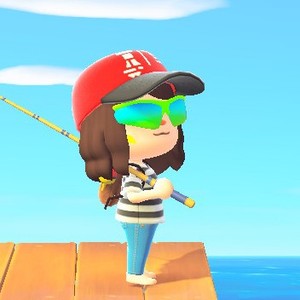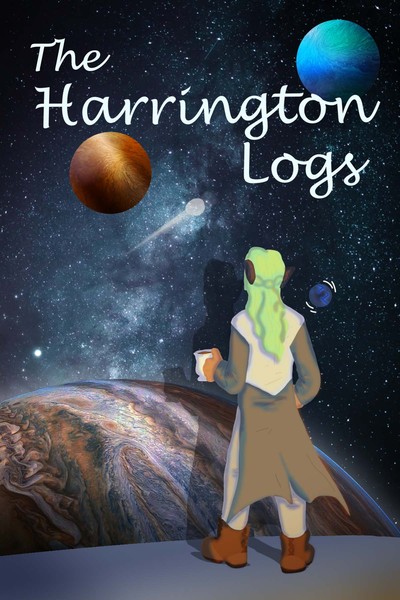It's commonly known among most spacefaring species that animals, creatures of every size, are going to be a commonality. From aliens resembling creatures on your home planet, to the more forgein looking pets that many different wanders keep. Even I myself keep a sort of pet with me in the form of Chroma. But pets are not my focus today.
Space cities like the one I come from are often less than appreciative of the creatures that can make a home in their walls. Rats or other small rodentia chewing on wires can be a bit of an issue when they help to keep an entire city from going dark. That's not even talking about the bugs that can hitch a ride in tourists bags without being noticed. My point is, once you have wildlife in a city, it can be very, very hard to get rid of.
Birds however seem to be fairly well accepted in most situations. Hell, some cities even make an effort to make sure they have birds. I have to admit, it can be nice waking up to the sound of chirping birds from not only earth, but other planets as well. My favourite was the Pine herroth, a crossbreed between the earth pine siskin, and the herroth from Krethera. Gorgeous little birds, with a song that just makes you feel like sleeping.
When I had my first visit to earth with my parents, I was simply amazed by the variety of animals that lived so close to humans. My Mim (mother for those of you wondering) had been to earth before some time before, as she had family living there, so there was no surprise there. My Mum (my other mother) however, had never actually been to earth before. There are still a few photos of when we first landed, with both myself and my mum looking starstruck.
I spent so much of that first day dragging my parents around as I chased after every little new creature I saw. I had never even seen a butterfly before, and in the height of summer there were plenty. After a few days, we grew more accustomed to seeing different animals and bugs around, even when poor Mum found a spider in the hotel room, and we discovered just what arachnophobia is.
Again, being in the heat of summer is a startling experience when you’ve only been on a handful of other mild temperature planets and space stations. I don’t remember whose idea it was, but we decided to head down to the beach for part of the day.
Safe to say I was fascinated by everything. It was part of what sparked my own interest in human history. Knowing each grain of sand was however many billions of years old? An unreadable document of the past, I wanted to learn how it worked. Of course, I say that now, however back then I was more focused on the different creatures that populated the beach. Mim, stars bless her, patiently explained everything she knew about every creature I brought her in my little toy bucket. From the dozens of crabs to even the slower fish I managed to catch in my childish clumsiness. I believe I must have brought at least half the beach's occupants to her in the time we were there.
The one thing that alluded my grasp however, were the birds. Anyone familiar with any avian species can tell you how flighty (pun intended) they tend to be. Unless you are slow, cautious and quiet, you have little luck catching any. Well, human children are none of those things. Running headfirst into large flocks is generally considered a bad idea, however children often know little better.
At last, as the sun began to set and I had used up almost all of my energy, I came back to sit next to my parents, and watched rather bitterly as a flock of gulls landed near where I had been playing a few minutes before. Mim, clearly noticing my frustration, simply chuckled and wrapped her arms around me as she pointed out towards the sea of white birds.
“Those birds over there are called seagulls.” She told me. “They are mostly found near any bodies of water, rivers and lakes included.”
I watched carefully as her hand moved from pointing towards the flock, to plucking a single piece of bread from the sandwiches we had been enjoying for most of the day. She tossed it in their direction, much to the confusion of both myself and Mum. they scattered from where it landed, watching us carefully with suspicious eyes.
“They evolved over the years to be able to eat human food without any problem.” She added, as one of the curious gulls stepped forward and carefully began pecking at the small piece of bread that was left there. “That's why they’re usually called sky rats.”
An, in an instant the whole flock was upon this small piece of bread, screeching and yelling at one another until there was nothing left but a small indent in the sand. Any other day and this would have been the end of it I'm sure, however what Mim had failed to realise was that Mum, unaware of the behaviours of seagulls, had begun eating one of the sandwiches that remained.
To see a couple dozen hungry eyes turn at once to you is an experience I do not think I will ever like to relive, even if it comes with amusement in hindsight. Unfortunately, simply throwing the food you still have is generally considered a bad idea. Once they see that you have it, gulls often assume you have more. To say we ran for our lives would be an understatement. Gulls, as i have learned, are rather relentless.
All in all the trip ended rather well, everyone was more aware of animal behaviour on earth, and by the end we had even come to a steady truce with the gulls. Safety bought with food sacrifices, it's not unlike many very ancient traditions of sacrificing in exchange for safe passage across the seas.
Wildlife is very interesting, but I find it's likely best to do your research before you go interacting with it. More often than not it can ensure you know what to expect. On earth, expect seagulls to steal any food you give them a taste of.
Harrington, signing off.










Comments (0)
See all